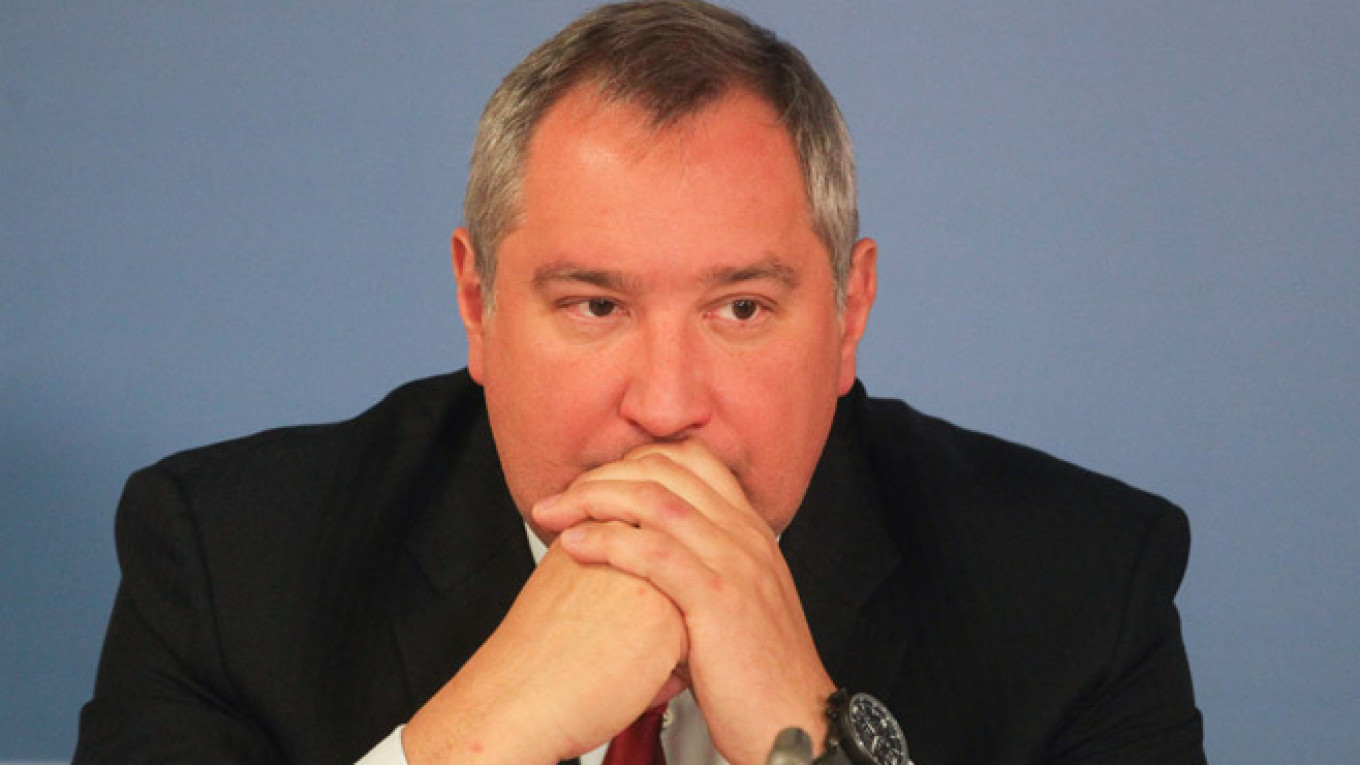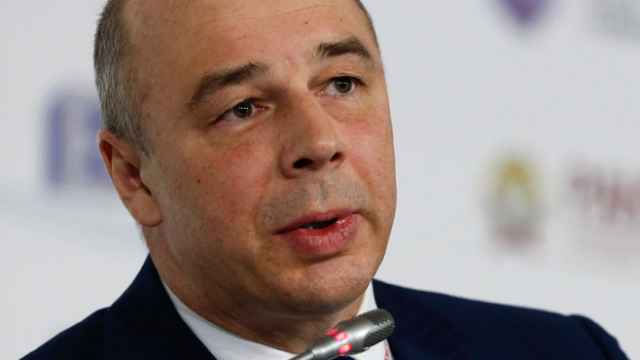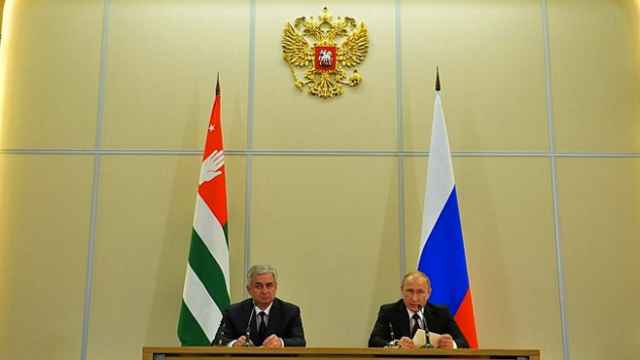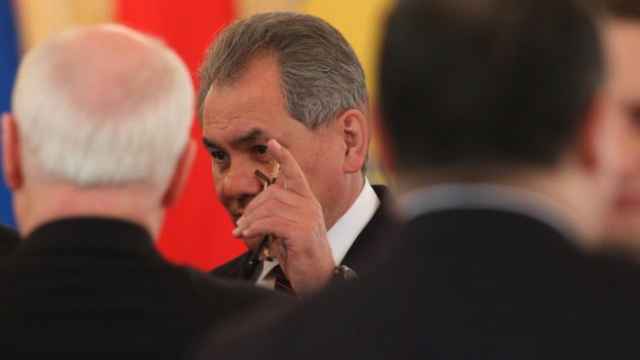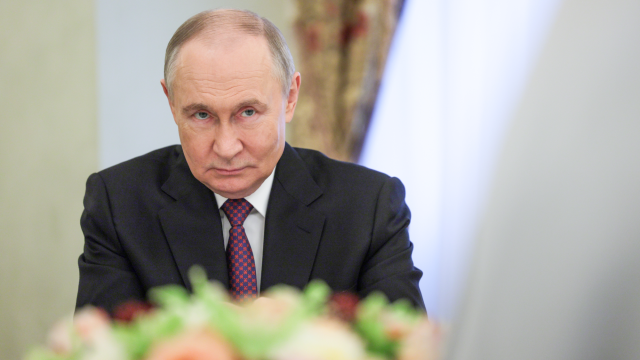Russia's commitment to defense spending amid sharp budget cuts and a recession will drive an economic recovery and ensure that Russia emerges stronger from the current crisis, Deputy Prime Minister Dmitry Rogozin said.
“We might underestimate what the military-industrial complex is working on today, but it is on this that we place our hopes for the survival and transformation of our country,” Rogozin, who is responsible for overseeing the defense industry, was quoted by news agency RIA Novosti as saying in an interview on television station Rossiya 1.
“[Russia] will emerge from this crisis even stronger,” he said.
Russia is in the middle of an ambitious decade-long rearmament program aimed at turning its aging Soviet-era armed forces into a modern organization sporting 20 trillion rubles ($300 billion) worth of new hardware by 2020.
Defense spending, which already accounts for some 25 percent of this year's federal budget, is set to take a larger portion of the pie as Russia's economy begins to bend under the weight of Western sanctions and the collapsing ruble, which has halved in value since last summer due to a sharp decline in global oil prices.
To account for a loss in oil-export revenues worth up to $45 billion, Russia must cut federal spending this year by 10 percent in all sectors, Finance Minister Anton Siluanov said earlier this month. Only defense expenditures will be spared the ax.
A report released by Moscow's Higher School of Economics in September found that while Russian manufacturing was on the rise, it was being driven mostly by military orders that masked stagnation across most other sectors.
Rogozin, whose job is to essentially lobby for more state funds on the defense industry's behalf, countered such skepticism by claiming that “any new job in the aircraft or rocket industries creates eight to nine new jobs in related industries,” according to RIA Novosti.
The military-industrial complex already employs around 2 million Russians, Rogozin said.
A Message from The Moscow Times:
Dear readers,
We are facing unprecedented challenges. Russia's Prosecutor General's Office has designated The Moscow Times as an "undesirable" organization, criminalizing our work and putting our staff at risk of prosecution. This follows our earlier unjust labeling as a "foreign agent."
These actions are direct attempts to silence independent journalism in Russia. The authorities claim our work "discredits the decisions of the Russian leadership." We see things differently: we strive to provide accurate, unbiased reporting on Russia.
We, the journalists of The Moscow Times, refuse to be silenced. But to continue our work, we need your help.
Your support, no matter how small, makes a world of difference. If you can, please support us monthly starting from just $2. It's quick to set up, and every contribution makes a significant impact.
By supporting The Moscow Times, you're defending open, independent journalism in the face of repression. Thank you for standing with us.
Remind me later.


